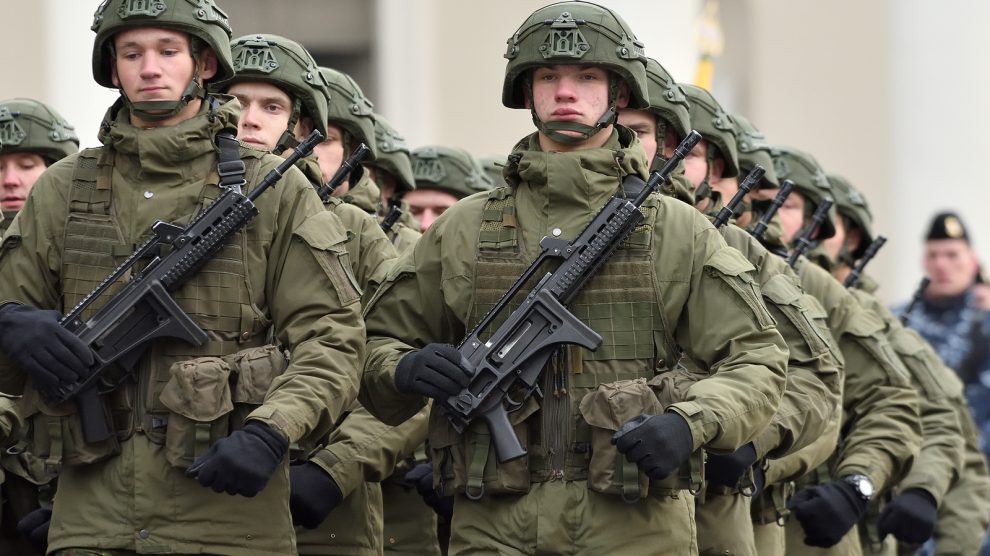The EU doesn’t need more red tape and fancy titles. Instead, specialised roles with a clear, focused purpose are essential in the context of the EU’s role in European defence.
Along with the traditional commissioner roles, President Ursula von der Leyen’s second European Commission, presented last month, introduces a new portfolio: Commissioner for Defence and Space.
Lithuanian Andrius Kubilius is her pick. He is still awaiting approval from the European Parliament. Von der Leyen emphasised in her announcement that he would focus on building a European Defence Union and strengthening Europe’s industrial and investment capabilities.
- Baltics lead the charge as emerging Europe bags several of the EU’s top jobs
- Why CEE is far from enthusiastic about the prospect of an EU army
- In the Baltics, defence tech is coming of age
But things are not as rosy as they seem. The title ‘Commissioner for Defence’ and the unclear responsibilities that come with it are already causing jitters in member states, where national sovereignty over defence is fiercely protected.
To strengthen Europe’s defence efforts, clarity in this role’s remit is essential. Without it, the EU’s ability to play a significant role in shaping the future of European defence will be nearly impossible to achieve.
The EU struggles with a fragmented defence industrial base, leading to reduced production capacity and inefficiencies. A lack of standardisation is a chronic problem. European countries each demand tailored versions of the same weapons systems to meet their own requirements. This disjointed approach undercuts Europe’s defence capabilities and is a major reason why European defence and deterrence remain heavily reliant on NATO and, by extension, the United States.
With the creation of a defence portfolio, the EU is aiming to project an image of self-sufficiency in defence policy and coordination. It’s not about full independence. No one is under that illusion. Instead, it’s about asserting some facade of influence in the sector.
The challenge, however, is that to back this ambition, you need more than job titles. You need substantial funding, real executive power, and a coherent, long-term strategy. Simply adding another portfolio to the already cumbersome EU bureaucratic machine doesn’t guarantee those elements will follow. It risks looking like a move for show rather than for substance.
As always, money is at the crux of the problem. In defence, Europe’s funding remains modest. The EU’s total government spending on defence accounted for just 1.3 per cent of its GDP in 2022. Even Kubilius, after his appointment, admitted: “We are looking at how we can raise money as quickly as possible.”
Adequate funding isn’t just a long-term problem. It’s a pressing one. With the current EU multiannual financial framework locked in until 2027, securing additional funds for new initiatives is tough. Kubilius himself floated the “theoretical possibility of common debt”, a carefully worded suggestion which reveals just how politically sensitive this idea is likely to be.
Investment, procurement, and research
Another real puzzle is defining the new commissioner’s remit, especially with responsibilities already spread across the high representative for foreign affairs and the commissioner for the single market. Mention ‘defence commissioner’ to people and they imagine a defence minister, but the reality is far less powerful.
The commissioner won’t control military operations or budgets. Meanwhile, the high representative will continue guiding the EU’s defence strategy through the Strategic Compass. Then there’s the European Defence Agency (EDA), which currently reports to the high representative. If the EDA remains outside the new commissioner’s portfolio, their influence will be significantly limited.
Kubilius’ mission letter from Commission President Ursula von der Leyen made one thing clear: coordination with Kaja Kallas, the pick for high representative on security, is a must. But there’s more. Kubilius is expected to focus heavily on economic matters like investment, procurement, and research.
Von der Leyen tasked him with driving public and private defence investment, developing a European air defence shield, enhancing military mobility, and creating a unified market for defence and space industries.
Noticeably absent from that agenda is any mention of a major new space initiative. Instead, the emphasis is on ‘cost efficiency’ in collaboration with the European Space Agency.
The EU doesn’t need more red tape
Coordination might sound straightforward, but aligning all the pieces is a different story. As the first defence commissioner, the candidate will have to carve out his role and set critical precedents.
Having a go-to person in Europe to navigate the complexities of the European Defence Fund, the European Defence Industry Programme, the European Peace Facility, and Permanent Structured Cooperation (PESCO), European Space Agency, and more would certainly help. However, the challenge lies in the fact that it’s uncertain, if not unlikely, that this portfolio will encompass all these initiatives in practice.
That’s why a more precise title emphasising industry and strategic planning could have clearly defined the role in shaping the EU’s security and defence coordination. This would help navigate the challenging dynamics of national autonomy, existing frameworks and EU entities.
The EU doesn’t need more red tape and fancy titles within its monstrous bureaucracy. Instead, specialised roles with a clear, focused purpose are essential for the development of uncertain positions, particularly in the context of the EU’s role in European defence.
Unlike many news and information platforms, Emerging Europe is free to read, and always will be. There is no paywall here. We are independent, not affiliated with nor representing any political party or business organisation. We want the very best for emerging Europe, nothing more, nothing less. Your support will help us continue to spread the word about this amazing region.
You can contribute here. Thank you.


